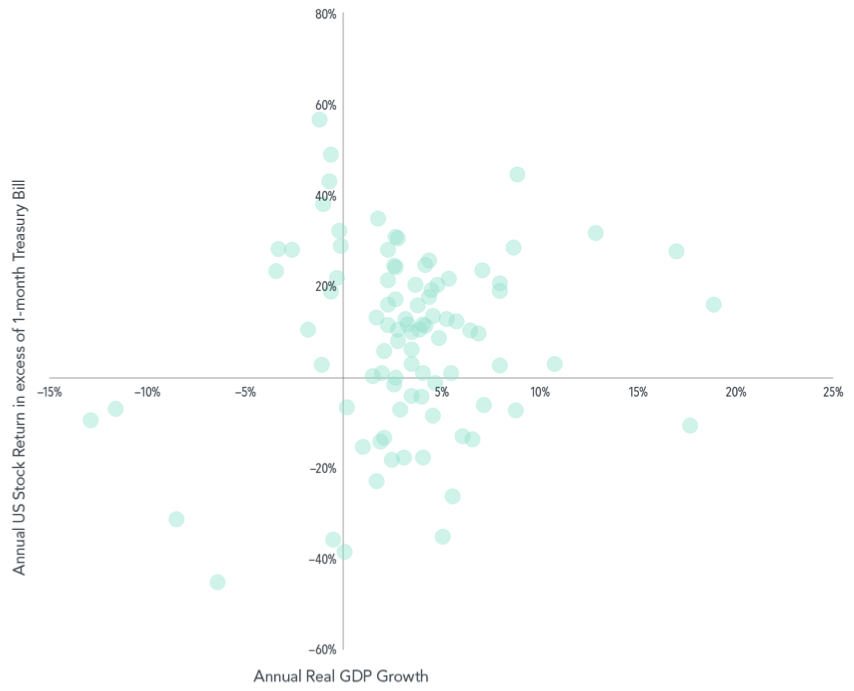The Stock Market and the Economy are Different Animals
Risk Premium Rate of Return vs. Annual Real GDP Growth

Markets Look Forward, but Recessions Look Back
Are we headed into a recession? A century of economic cycles teaches us we may well be in one before economists make that call, but one of the best predictors of the economy is the stock market itself. Markets tend to fall in advance of recessions and start climbing earlier than the economy does. As the chart above shows, returns have often been positive while in a recession.
All the dots in the upper left quadrant in the chart are years where the US economy contracted but US stocks still outperformed less-risky Treasury bills. It’s a great illustration of the forward-looking nature of markets. If you’re worried, other investors are too, and that uncertainty is reflected in stock prices.
What Are the Long-Term Results?
Whether accompanied by recessions or not, market downturns can be unsettling. But over the past century, US stocks have averaged positive returns over the long-term. A year after the S&P 500 crossed into bear market territory, it rebounded by about 20% on average. After five years, it averaged over 70%.
We believe that staying invested puts you in the best position to capture the recovery. If you take risk out of your portfolio, it should be a strategic, not tactical, choice. We believe the only good reason to sell out of a stock portfolio now—so long as it’s diversified and low-cost—is because you learned something about your risk tolerance or your investment goals have changed.
